Homeschooling is a much misunderstood and maligned word. It seems natural for people to jump to conclusions about it. After all, since one knows the meaning of “home” and “school”, naturally putting them together should obviously define homeschooling as education relegated to the home environment, right?
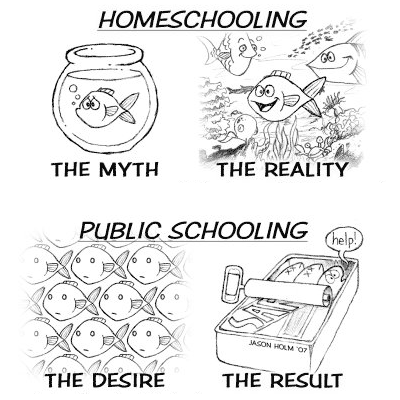
It’s true that homeschooling in general includes more contact hours at home, but it doesn’t mean that learning is solely done at home. In fact, a big part of homeschooling is experience-based (experiential) learning outside the usual four corners of traditional classrooms. The whole world can literally become the student’s educational oyster.

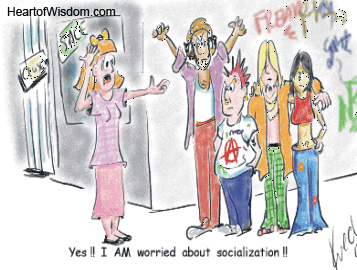
Section 1(2) of Article XIV (14) of the 1987 Philippine Constitution states that the State shall, “Establish and maintain a system of free public education in the elementary and high school levels. Without limiting the natural right of parents to rear their children…” It is from the last phrase on supporting parental educational rights that homeschooling is provided the legal basis of educating children. However, Section 4(1) of the same also stated that, “The State recognizes the complementary roles of public and private institutions in the education system and shall exercise reasonable supervision and regulation of all education institutions,” is one legal basis to support the establishment of formal homeschool providers, both as an educational institution and organization, as well as a business model.
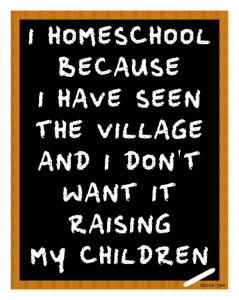
Before DepEd, there was DECS, and before that was the Ministry of Education, Culture, and Sports whose educational powers and functions (Section 5) were enumerated under Executive Order 117, series of 1987. Section 5 included item b, as follows, “Sec. 5. Powers and Functions. To accomplish its mandate and objectives, the Ministry shall have the powers and functions of formulating, planning, implementing and coordinating the policies, plans, programs and projects for the following areas of responsibility:
(b) Non-formal and vocational/technical kinds of education;
Again, homeschooling would fall under a non-formal kind of education (granted a choice of only formal or non-formal education). By non-formal, I mean education not falling under the typical traditional classroom set-up. In addition, a 2001 paper by Torres cited a more explicit and specific classification based on the International Standard Classification of Education (ISCD), http://www.adeanet.org/adeaPortal/adea/wgnfe/publications/biennial01/RMTorres%20-%20ADEA%20Biennale%20outline.pdf . She classified education into three types: formal education (FE), non-formal education (NFE), and informal education (IE) with the following definitions:
Formal education comprised “regular school and university education”; non-formal education (NFE) comprised “out-of-school and continuing education, on the job training, etc.”; and informal education comprised “family and socially directed learning”. A fourth category, experiential learning, was added to embrace “learning by doing, self-directed learning, etc.” (UNESCO 1991:17-18).
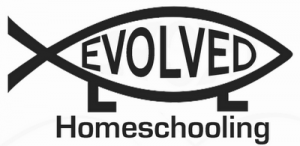
It should be noted that E.O. 117 series of 1987 came much earlier than Torres’ paper, where alternative educational systems are relatively recent developments when compared to other countries. For example, while the British Open University which provides these alternative learning systems was operational as far back as 1971 (http://www.britannica.com/EBchecked/topic/429744/Open-University ), most of the Philippine legal documents for such systems were only crafted in 2000. There was only one introduced at the time in 1972, three in the later 1980’s, one in the 1990’s.
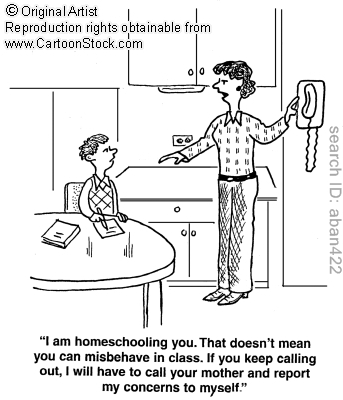
Another common concern is the socialization process. By socialization, I mean a definition similar to the following: processes by which individuals acquire the knowledge, language, social skills, and values to conform to the norms and roles required for integration into a group or community (http://www.businessdictionary.com/definition/socialization.html ).
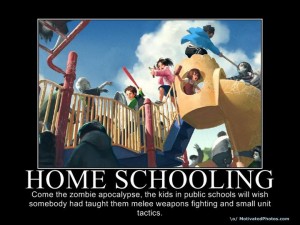
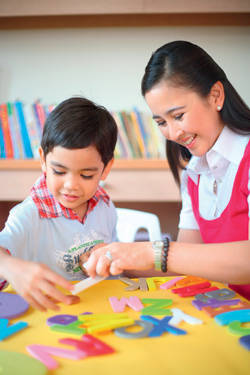
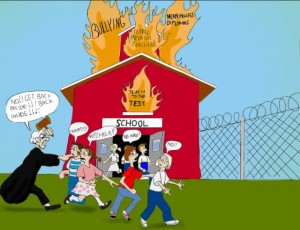
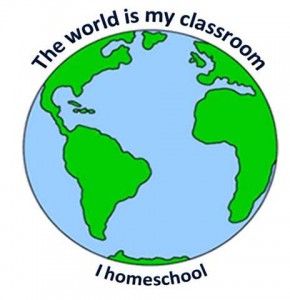
They also cited the work of Smedley, (1992) who found that, “home educated children are more mature and socialized than those sent to school.”
Granted that the sample size is low, and thus, future studies must include a bigger sample size as well as similar local studies. Nonetheless, the results of this research is encouraging for parents like me who have chosen homeschooling for their children.
As a parting note, homeschooling has afforded me several other benefits, not the least of which include more family bonding, less cost (no uniform or daily transportation costs), less worry about my son fitting in school, bullying, or even infection from recent epidemics (like the last AH1N1 scare). At worst, sectarian schools will constrain and indoctrinate children with unconstitutional school rules and guidelines and superstitious mumbo jumbo. With homeschooling, my son and I can be out having nature walks and talks, identifying plants, trees, and insects.
References
The 1987 Constitution of the Republic of the Philippines. (1987). Retrieved April 5, 2012 from http://www.chanrobles.com/article14.htm
Executive Order No. 117 January 30, 1987: Reorganization of the Ministry of Education, Culture, and Sports prescribing its powers and functions and for other purposes. Retrieved April 5, 2012 from http://www.lawphil.net/executive/execord/eo1987/eo_117_1987.html
Homeschooling and open universities in the Philippines. Retrieved April 5, 2012 from http://en.wikipilipinas.org/index.php?title=Homeschooling_and_open_universities_in_the_Philippines
Jardeleza, M. J.Learning System Program. Retrieved April 5, 2012 from http://www.slideshare.net/YsayJardeleza/alternative-learning-system-program
Koehler,L.D., Langness, T.J., Pietig, S.S., Stoffel, N.L. and Wyttenbach, J.L. (2002). Socialization skills in home schooled children versus conventionally schooled children. Retrieved April 5, 2012 from http://murphylibrary.uwlax.edu/digital/jur/2002/koehler-langness-pietig-stoffel-wyttenbach.pdf
Torres, R-M. (2001). Amplifying and diversifying learning: Formal, non-formal, and informal education revisited (Outline). Retrieved April 5, 2012 from http://www.adeanet.org/adeaPortal/adea/wgnfe/publications/biennial01/RMTorres%20-%20ADEA%20Biennale%20outline.pdf


Just wanna ask.. Does anyone of you think about universitiea that accept home schooled child. I am about to start homeschooling my daughter. And this is one of my questions..
Hi! I’m a new homeschooling mom and I’m so happy to have stumbled upon your post. This affirms my sentiments about homeschooling my child. I’m still at the beginner’s stage and still unsure of my steps. Is your son enrolled in a private school offering a homeschool program? Or did you opt for independent learning?
Thank you!
Hi!
Glad to have found this site. I’m planning to homeschool my son, along with two other kids. We’re trying to follow Sugata Mitra’s model, which is called SOLE (Self-Organized Learning Environment). Not only will children be independent and more advanced than their peers, they take control of their learning and they learn to be mentors to other kids. Check out ted.com and look for Mitra’s talk. You can even download a SOLE Toolkit for free!
Great article! I'm an Education graduate, and I agree with the points raised by the author on homeschooling. The paradigm in education these days is individualized instruction, and that is such a daunting task for the classroom teacher handling a class of 25, more so a class of 30, and perhaps close to impossible in a class of 40-50. The tendency for the teacher in this situation is to tailor teaching to the average learner.
Based on my teaching experience, one of the biggest hindrances to fostering learning in the classroom is resource allocation. I'm not just talking about the books, but more importantly the teacher's time, focus, guidance, attention, even empathy and concern. So I think the ideal learning setting has to have a small class size.
If people can afford homeschooling, by all means I think they should try it. I think what homeschoolers can do is create a community or network. They can organize or synchronize certain lessons with other homeschooled kids and parents. This is one way of providing homeschooled children with opportunities for teamwork, negotiation, cooperation, etc.
And I really think that it's wonderful that the author exposes her child to different kinds of people, and different communities. I think the freedom to bring the child outside into the world to communicate with community members such as policemen, nurses, peddlers, etc. is one of the biggest advantages of homeschooling. In a traditional school, children are trapped in the classroom. When they have excursions, it's structured and limited. In homeschooling, there's a very large potential or possibility for the child to experience the world, to communicate reciprocally with his/her community.
Hi Sinthus! This seriously made my day. 🙂 I agree with all that you said. May I also add that the shift from a traditional perspective to a homeschooling one can be quite radical for some. It may mean a change from a content-centered approach to a student-centered one, and all the implications of such a change.
We definitely have the "regular" special events that most traditional schools have. For example, in Linggo ng Wika, we had a Filipino fiesta games, everyone was required to talk in Filipino, there was a workshop wit Kontra Gapi, an ethnic music collective led by UP Prof. Edru Abraham, and talks about Rizal. There was also Filipino cosplay for both child and parents. I've seen datus, Jose Rizal, historical figures, tribal wear, the terno dress, barong, etc etc
Even buying groceries can be a lesson in both Math, classification (a skill for taxonomy), and socialization.
I think that all the strengths of homeschooling can be promoted by parents who consciously expose the child to various experiences and who is sensitive to the potential of all experiences to be teaching moments.
Again, thank you very much.
That sounds really great! I think people in this thread should pay attention to what you said about the importance of being "sensitive to the potential of all experiences to be teaching moments." That is relevant not only to parents who homeschool, but to all adults, I think. It does take a village/community to raise a child. Even the saleslady at the shoe store helped us teach my two-year old niece to learn how to put on her shoes by herself, carry a plastic bag, and return things from where she got them.
I suppose one of the misconceptions many people have about homeschooling is that the parent alone teaches the child. That doesn't have to be the case. Using resource persons is a valid teaching strategy, and it does seem like homeschooling can actually accommodate that more than traditional schools can. Using the resources of the community for e.g. skilled artisans, professionals, etc and engaging them in the child's learning is part and parcel of a community-based approach to teaching and learning.
Right now, I'm also interested in the merit of novice-mentor relationships and project-based learning. I think that in a homeschool environment, these teaching strategies are more easily adapted rather than the standardized and often bureaucratic traditional school system.
Thanks very much…yes, before I used to think that there is no learning without formal teaching but it isn't true. I have been observing how my own son is learning and it's amazing what he can learn by being allowed to do so. When he is interested in something, that's always a signal for me to delve into the topic, and google on it. It's the same with your niece and the saleslady. 🙂 In our case it was a fly in a fast food resto. My son was asking who to complain about it. he thought it was the security guard (chuckles) but lola informed him to talk to the Manager instead…which he did on his own.
"I suppose one of the misconceptions many people have about homeschooling is that the parent alone teaches the child. That doesn't have to be the case. Using resource persons is a valid teaching strategy, and it does seem like homeschooling can actually accommodate that more than traditional schools can. Using the resources of the community for e.g. skilled artisans, professionals, etc and engaging them in the child's learning is part and parcel of a community-based approach to teaching and learning."
Oh hey, another myth about parents being the sole teachers. My son is interested in bacteria so what better way to introduce him to the topic than to bring him to a microbio lab with the admin, professors, researchers, and technicians. He donned a lab gown, put on plastic for his shoes before he went to an aseptic room, looked at gram stained (a standard staining technique) bacteria under the microscope, and discussed over a Microbio book with one of the lab's foremost researchers.
"Right now, I'm also interested in the merit of novice-mentor relationships and project-based learning. I think that in a homeschool environment, these teaching strategies are more easily adapted rather than the standardized and often bureaucratic traditional school system." – I wonder if this can be used even for children. I think it might be, although the project should be more appropriate for children.
Again, thanks for the comments. Your insights are very helpful. May we ask for other insights? 🙂
I forgot to mention that many homeschooling families, especially those geographically close to each other organize learning events as learning cooperatives. These instances again become opportunities for learning and socialization. In fact, many homeschooled children develop very strong ties with each other. The times when we do go the homebase of our homeschool provider would often have children playing together for extended periods, negotiating, helping younger children, and policing unruly behavior. I see children playing chess against each other, playing ball, having extended music, arts, or P.E. lessons together, etc. etc.
It was all very novel when I first saw it…I was very pleased.
@HasaDigaEebowai
From the ff website:
If you practice rational and critical thinking, subscribe to strong scientific evidence, and have a keen and open mind, you certainly can be a Filipino Freethinker.—
of course i don't have proof. but certainly, by giving such claim, do i need one?
As a person who claims to be a freethinker, YES, you need evidence to back up your claims. In fact, as a practice in meet ups, ff regulars insist on proof of claims, including, but not limited to reliable academic research including scientific studies, academic journals, and other reputable sources. FYI
thanks. for my claim of homeschooled children missing the limitations of an ordinary school like what i said; cramped rooms, limited resources, risks of being bullied or persuaded by bad influences, non secular values education etc. i was in my head that it was obvious. that's why i didn't give any proof. but missing these things, from my point, can also become risky for the child in the future. meeting such people or situations early on in life provides a different learning experience. cannot be taught by books nor anyone by theory alone.
the education system for the regular program is bad. but there's plenty of room for improvement, and like home schooling, parents should have been involved from the beginning. im not good in researching for reliable references online, but things i agree on the risks of home schooling are these:
1. incompetence and bias learning from parents
2. elitism. those who can home school their kids are obviously from well-living families.
there's a limited study on this here in our country so, i can hardly find any proof. maybe in time..
I think that what may seem obvious to you may not be for others…that;'s why I did say to be clear about it. As I mentioned in many of my comments, the child may not necessarily miss out on those experiences…there are bullies everywhere, even outside of homeschooling…unless you are talking about classroom bullies…but there are also homeschooled bullies. I think that it's assuming too much that just because the child doesn't experience what most public students experience, the experiences of homeschooled children are necessarily inferior so I don't agree on that one.
With all due respect, I think there are more risks in public schooling than there is in homeschooling. But there are risks everywhere…as soon as you step out of the house, there's risk involved. On bias…everyone who has an opinion has bias. For example, I am biased towards opinions with academic studies. Is that bias necessarily bad? I don't think so…so it depends exactly on what that bias is.
Elitism…you are right about not having enough local academic studies on homeschooling so saying that homeschooling is only for say class A, B, or C is a stretch for me. I will suspend judgment until there is enough proof.
In the States though, homeschooling is not merely for the rich:
The median family income was $75,000 to $79,999, while 4.8% of the families had an income of $29,999 or less. Table 8 shows incomes of the students’ families. For comparison, in 2006 in married-couple families with one or more related children under age 18, the median nationwide income was $74,049 (in 2006 dollars; or roughly $79,015 in 2008 dollars, Westegg.com, 2009) (U.S. Census Bureau, 2009, Table 678).
Table 8
Distribution of Family Income for Homeschool Families
Income Category Frequency Percent
Less than $10,000
45
.4
$10,000-$14,999
62
.5
$15,000-$19,999
105
.9
$20,000-$24,999
151
1.3
$25,000-$29,999
197
1.7
$30,000-$34,999
390
3.4
$35,000-$39,999
392
3.5
$40,000-$44,999
496
4.4
$45,000-$49,999
564
5.0
$50,000-$54,999
728
6.4
$55,000-$59,999
536
4.7
$60,000-$64,999
690
6.1
$65,000-$69,999
542
4.8
$70,000-$74,999
662
5.8
$75,000-$79,999
562
5.0
$80,000-$84,999
534
4.7
$85,000-$89,999
473
4.2
$90,000-$94,999
430
3.8
$95,000-$99,999
545
4.8
$100,000-$149,999
2212
19.5
$150,000 or more
1009
8.9
Total
11325
100.0
The table does not copy the format, but the link is here: http://www.academicleadership.org/392/academic_ac…
Notice in table 8 that the majority of the proportion of families under different family incomes is 0.4-6.1, except for the second to the last part at 19.5…but, if you add the other family incomes, about 70% of them are in the $95,000-$99,999 and below. I can imagine that except for the 19.5% at the end, the graph would be more or less even.
I am actually in the process now of studying socialization of homeschoolers. It will be awhile though before the results come out.
In the Philippines, until when can one home school? I mean, someone needs a diploma for high school right? or not? I'm actually planning home schooling because of my own experiences in elementary when everything was taught again and again every year. It is not our fault if we can grasp things faster, or if we are academically better than others. And i heard deped is adding more years in elementary =_=
Private schools involve too much money, while public schools can't teach properly. Well, that's for me.
Hi…I noticed that homeschooling in the Philippines is often relegated until highschool, after which, one can still study at home using an Open Learning system, i.e. UP Open University. That's why I did mention in one comment that it is critical that the program is DepEd accredited, otherwise, there could be problems arising with lateral transfer…meaning from homeschool to traditional education.
I think perhaps you are referring to K-12? The kinder level is mandated in the primary levels but that's it. It's still up to Grade 6. Then there is an extra 2 years of senior high school., the Grades 7-10 is equivalent to 1st to 4th year highschool.
Homeschooling costs also cover a range. The one in St. Francis is relatively cheap though…25k for the whole year, plus about 5k in instructional materials. Also, there is the option of paying in 5 monthly payments…it's slightly costlier but just about 1-2k more.
Good luck. 🙂
As a dual-income family, I can't very well afford to do homeschooling right now, even with help from an external provider. I admit the idea has often come to mind whenever I look at my kid's educational materials and recall my child's experiences of bullying. Also, where else can I teach my children about such taboos like science, sex education, feminism, LGBT rights, reason, secularism and computer programming?
I've chosen to bring her back to a cozier school with a smaller class size while she is in elementary. However, I plan to throw her back in to the sharks at the local high school to build mental toughness.
In my observations and experience, if a student is academically-inclined (and I mean, big-time academically-inclined, top in the country and all that), nothing beats traditional school for that realistic cutthroat competition. It doesn't do much for learning (because they don't need to be reminded that; students with less aptitude should be handled a different way), but it's good training that may not often be experienced in a home-schooling environment because of the emphasis on protection.
Well, I did say earlier that there are homeschools that are cheaper, even cheaper than relatively affordable private schools. A private school elementary educ costs about what 30-40k, if its a higher tier school like Xavier and La Salle, it would be about 80-100k?
"In my observations and experience, if a student is academically-inclined (and I mean, big-time academically-inclined, top in the country and all that), nothing beats traditional school for that realistic cutthroat competition. It doesn't do much for learning (because they don't need to be reminded that; students with less aptitude should be handled a different way), but it's good training that may not often be experienced in a home-schooling environment because of the emphasis on protection."
I will have to respectfully disagree with this one (your third paragraph).. In my homeschool provider, which is one of the oldest in the country, if not the oldest, we've successfully graduated highschool students who got into Ateneo and UP. I can ask further where the others have gone. I remember listening to one presentation on this so I could look into it a little more.
There was also a presentation in my homeschool provider that showed that our students were about two grades ahead of their peers. I could look into the tests that they did…maybe t test for independent means and the research design, but I do recall that one of our consultants has a PhD in Education in UP.
In the U.S. (as far as I know, there are very few, if any local researches on homeschooling) and in fact in many related literature, homeschoolers consistently outpace the national achievement, the usual I've read is that national achievement scores are somewhere in the 50s-60s while homeschoolers score in the 80s to 90s.
I have to say that one of the requirements of our homeschool provider is that one of the parents has to be a college grad. At the same time, the parents need to be prepared to commit serious time with the child. Other than that, I think that the quality of local education is terrible and that parents may feel insecure about teaching their child but I think that most of those fears are unfounded.
The real problem with education here is that we teach to the test, meaning garbage in and garbage out. We saddle the students with a lot of memory work, content, and rote learning when what we must emphasize more of is higher order thinking skills (hots) along with basic facts. So the real litmus tests are entrance exams…but as I said, our homeschool provider has already graduated students who did well in highschool, and if I recall, even in college.
Where did that emphasis on protection idea come from? There are many reasons why homeschoolers homeschool. That group is not monolithic. A lot of that also depends on the parents. I bring my son even to poor communities. I think I will make this a regular SOP so that he doesn't grow in a "bubble". We also bring him out to independent gigs to meet anarrchists, punks, and metal heads, which many people would probably raise an eyebrow to…so it really depends. As far as I am concerned, if I compare my son's experiences with those of a traditionally educated student, I think the richness of his experiences is sufficient.
Once upon a time, I would never have considered homeschooling my imaginary, hypothetical children because I want them to have some degree of independence from me (their hypothetical mom) and give them wide opportunity for social interaction.
But what with DepEd fu… uhm, doing very bad things to our educational system (I'm looking at you, removal of Science from Primary Education,) I've decided that I am way more qualified to teach my children than the fools making up our curriculum.
Thank you for the article. It has cleared up a lot of my concerns on the matter.
Thank you very much…that was very heart warming. I will try to write more about this topic as it seems to interest a lot of people. Again, thank you and you're very welcome. Glad to help
Hong Kong and Singapore's case are quite unique because homeschooling is still not widely accepted there but surprise, surprise, there's a growing "underground" movement for it. http://singaporehg.byethost13.com/ http://www.meetup.com/hongkong-homeschool/
The point seems to be clear…even in developed, globally competitive, and even relatively restrictive educational environments of Singapore and Hong Kong, homeschooling is becoming an option for parents.
http://www.academicleadership.org/392/academic_ac… for additional reading
I was home-schooled from Grade 1 to 4th Year High-school. And I definitely have to say it worked wonderfully for me and my family, seeing as I just graduated from college! Then again, home-schooling will only work for families that are ready for the all the challenges that come with it. 🙂
I agree. Homeschooling is not for everyone but there you go, you are a product of homeschooling. And you graduated college na. Wondeful and congrats!
everything that one can learn in homeschooling is available in regular mainstream. the "myths" mentioned here are actually observed effects in home schooled individuals, nonetheless most of them. there are things that kids will never learn without facing the cramped, limited, competitive, heterogeneous, "bewildering" environment of regular schooling. things that can only be learned in such encounters.
while homeschooling has its advantages, it's up to the parents to weigh these and the things that their kid will surely miss. and if family up to the second degree is "social" enough, i say it's the child who will manifest this later.
I disagree. I believe that since homeschoolers have more opportunities to interact with real life experiences, with more people of different kinds, they can have an edge over conventionally taught students. How much more heterogenous can one get when one can deal not just with ones peers but others as well?
I don't understand this comment: myths are equivalent to observed effects…Which myths, what effects and what is the basis? Please provide your reliable sources.
I can also say that traditional schools have their disadvantages too…as with anything. Parents and relatives are not the only people that homeschooled kids interact with.
Philippine traditional schooling versus homeschooling – the differences are a lot more apparent when they are compared:
1. Teacher to student ratio – traditional school anywhere from 20-100 students to 1 teacher versus 1 child: 1-2 homeschool parents.
2. No need for security guards in a homeschooling system.
3. Socialization with people of all ages (note: parents can easily opt to always bring out their children everyday and not have them cooped up at home).
4. Homeschool days can include week ends and holidays. One will not be affected by class suspensions due to bad weather.
5. Safe food – cafeteria food can be the cause of food poisoning.
6. Vacations are also opportunities for learning.
7. You can study as many books as you like, added with the instructional materials provided by the homeschool provider.
8. No more need for things like raising one's hands just to go the bathroom.
9. Homeschool parents need not worry if their child learned something in school.
10. The latest "fads" which may not be appropriate for your child does not reach a homeschooled child, including gangs, drugs, bullying, religious indoctrination, cults, etc.
11. There is more emphasis on life skills, accounting, keeping chores, cooking, cleaning, washing clothes, over and above merely academic stuff.
12. Individualized instruction – There's always time to go into the interests and competencies of the child.
13. No worries about epidemics like the recent AH1N1 which forced many schools to close for long periods.
14. Education is more fun for the children – you can go anywhere to learn; a park, a museum, an indie gig, a science center, a local laboratory, city hall, govt buildings, historical sites, cultural festivals and events (music, dance, visual arts), etc. etc.
Thanks much.
ahh the "myths" im referring are the myths that you shared in the article. like the person eventually loses some social skills as a result of kinship learning(shown in the pictures). public or regular schooling can be as challenging and as fun as what was presented here. and the "disadvantages" of the mainstream actually present a child situations which are better samples of our society. such encounters like a school bully or a cramped classroom teaches something that can't and will never be learned by home-schooled exclusive kids.
the problem with regular schooling that was addressed by homeschooling is parental involvement. but this is not to be blamed to regular schooling to begin with. parents should be involved regardless of the program.
kids enjoy school. but that shouldn't stop there. one family can always contribute to their kid's learning and it was never exclusive to homeschooling. that was my point.
What exact myths are those that I identified exactiy?Please enumerate them.
Which person loses socialization skills from kinship learning? Do you mean learning from families? Traditional schooling historically was borne out of the industrial age. Before that, homeschooling is the "norm". If you've read my responses (maybe not), I did say that homeschooling isn't limited to just one's family…sheesh, if it's so hard to wrap your head around homeschooling, just say so. Have you tried homeschooling? No? because I have tried traditional schooling with 2 of the most expensive private schools near our place, but it was a letdown. So, I have been on both sides of the academic fence…traditional and homeschooling.
Please cite the sources for you opinion, otherwise, that's how I will treat them, merely your opinions.
Perhaps some traditional schools are better than others…but on the whole, homeschooling has an edge because of its individualized and personalized nature. http://boujepublishing.wordpress.com/2009/03/29/t…
and the "disadvantages" of the mainstream actually present a child situations which are better samples of our society. such encounters like a school bully or a cramped classroom teaches something that can't and will never be learned by home-schooled exclusive kids…
Those disadvantages, does that include serious bodily harm? http://www.latimes.com/news/nation/nationnow/la-n… http://newsinfo.inquirer.net/139175/teacher-shot-…
Or even children being molested.
Better samples of our society? Do you mean statistical samples?…because that changes depending on what criteria you use. I disagree. I think that it has something to do with acceptable risk…and I am not talking about merely physical well being, but also intellectual well being, and even social well being.
There are bullies anywhere…do we have to wait until they do harm, or even kill?
You talk as if the public school in the Philippines is idyllic, and its far from it. http://newsinfo.inquirer.net/168505/deped-many-pu… http://globalnation.inquirer.net/31229/philippine… http://philrights.org/wp-content/uploads/2010/10/…
By all means, when you have your own child, put them in a public school. We won't though.
The burden of proof rests on YOU…and you haven't even put anything substantial or evidential/ empirical yet to back up your claims. You probably just feel terrible that I should seem like I am attacking a traditional institution like conventional schooling.
Do I look like I am blaming traditional education? This article is about homeschooling.
Kids enjoy school: that is a generalization. There are many kids who don't. And just citing one example will debunk that sweeping statement. http://baexpat.com/2012/04/03/why-your-kid-hates-… http://www.parenting.com/article/why-kids-hate-sc… http://en.wikipedia.org/wiki/How_Children_Fail
Did I ever say that learning was exclusive to homeschooling? Where did I say that? Don't do the straw man just because it's easy to argue with that. http://en.wikipedia.org/wiki/Straw_man
"By all means, when you have your own child, put them in a public school. We won't though."
(you are generalizing)
"Did I ever say that learning was exclusive to homeschooling? Where did I say that? Don't do the straw man just because it's easy to argue with that."
(i was referring to the involvement of parents in their kid's learning. this is not exclusive to home school programs as the regular program had always encouraged this. the problem rests with the Pinoy culture of putting everything on teacher's shoulders.)
"The burden of proof rests on YOU…and you haven't even put anything substantial or evidential/ empirical yet to back up your claims. You probably just feel terrible that I should seem like I am attacking a traditional institution like conventional schooling."
(i have only but one claim and that was home schooled individuals missing crucial experiences in life. of course i don't have proof. but certainly, by giving such claim, do i need one? they will miss cramped flooded rooms, terror teachers, limited libraries, school bullies. yes. is that alright? from your stand, i guess it's a yes. but for me, as a product of public school system and being a public teacher myself, i feel my opinion has weight being in that situation for more than half my life. you cannot protect your children forever. this is the village. one way or another, they will face it. on their own. can home schooling supply the experience they need to face it? they just missed it didn't they? and pardon if i seem to be supporting the regular program. it's not that. im just giving my opinion in a freethinking community from what i know.)
lastly, we're both against indoctrination. but i guess it comes to me that homeschooling is prone to it. being from a conservative or freethinking parent doesn't change the possibility.
I think we should clarify terms. What is your definition of a regular program? A traditional academic program? I think you have to be clearer…if you think that that statement can be misconstrued then by all means, make it clear.
Sure, traditionally schooled children have contact time with their parents, but homeschooled students have more contact time with their parents and if I will use contact time like no. of hours as a criteria, then I would say that homeschooled parents have more parental involvement with their children.
(i have only but one claim and that was home schooled individuals missing crucial experiences in life. of course i don't have proof. but certainly, by giving such claim, do i need one? they will miss cramped flooded rooms, terror teachers, limited libraries, school bullies. yes. is that alright? from your stand, i guess it's a yes. but for me, as a product of public school system and being a public teacher myself, i feel my opinion has weight being in that situation for more than half my life. you cannot protect your children forever. this is the village. one way or another, they will face it. on their own. can home schooling supply the experience they need to face it? they just missed it didn't they? and pardon if i seem to be supporting the regular program. it's not that. im just giving my opinion in a freethinking community from what i know.)
I disagree. Define crucial experiences? Classroom lectures? Seatwork? Being bullied? What are these crucial experiences? XD
If you don't have proof, that's a problem. Yes you do, especially in this forum. 😀
Protecting children? — where do you draw the line of what is acceptable risk and what is not? Isn' t that an arbitrary choice? Doesn't that depend on who's assessing their educational choice?
You cannot protect your children forever — you don't know me so I don't know where you got this. It's an unfounded assumption.
Everyone is entitled to their opinion, but there's an opinion and then there's well-founded opinion, and then there's evidence. So yes, I do expect more evidence from you.
I think that you should visit homeschoolers and see for yourself how they behave rather than make assumptions based on your experience with traditional public education….because you may know a lot about that but not enough about homeschooling and thus, your opinion is biased against homeschooling despite a wealth of information, studies, and researches that homeschoolers are doing not just well, but very well.
Values education in public schools is highly infused with a lot of religious propaganda. Not to mention a lot of public schools allow Catholic catechists to use the time for values education to teach Catholicism at the expense of non-Christian and non-Catholic students.
There is secular homeschooling…homeschooling is a neutral tool, as much as anything is. You can use a knife to cut meat but you can also use it to kill someone. The problem with public schooling in the Philippines is that much of it is constrained by policies with religious influences.
Even DepEd now is led by a religious layman, Br. Armin Luistro. Can we safely say that his religious views do not trickle down to the decisions he makes for public and national school education? Hmmm….
DepEd Secretary Br. Armin A. Luistro FSC
Born in Lipa City, Batangas, he finished his elementary and high school education at De La Salle Lipa, and earned his Bachelor of Arts degree in Philosophy and Letters at De La Salle University, Manila. In this same university, he earned his Master’s Degree in Religious Education and Values Education.
http://www.deped.gov.ph/about_deped/content.asp?i…
Most homeschool providers in the Philippines is private, thus, they have more leeway with regards to education, i.e. Science education which was removed in the first 2 grades of public schools but is present in private educ programs. Public = standardized
I find it hard to imagine how homeschooling can cut it when the child lives in a scholastically competitive society like Hong Kong or Singapore.
Also, some parents may not be equipped to teach rigorous subjects like Physics, Chemistry or Math. And how about group project work? In the real world learing to work together with peers is quite useful.
It's a legitimate alternative in the context of the Philippines. If the quality of education was better as a whole, then probably, there would be less homeschoolers in the first place. As it stands, the number of homeschoolers in the Philippines is rapidly growing. In our own homeschool provider, the number of families (note, not children) grew from 300 to 400 in just 1-2 years. At present, it stands at 600+.
According to some stats provided by our homeschooling provider (which I cannot mention here), generally, the homeschoolers in our program are about 1-2 years ahead of their peer groups. The curriculum we are using is also accredited by a U.S. educational program…so, it is doubly accredited, both locally and internationally.
Please read more about the socialization process…because that is not a process that exclusively happens between peers. I have observed that most homeschoolers are more confident than most of their peers. It is critical that the homeschool program is DepEd accredited because that will enable one to do lateral entry…meaning, you can choose to put the child back in a traditional highschool if the parents desire so.
Now, the homeschooling philosophy is quite different from traditional schooling, it's more about learning life skills and to go into something that you're interested in, and not merely take up say, hard Science subjects just for the mere goal of taking it. One of the proponents of this unschooling philosophy is John Holt.
Homeschhool parents can and do have learning cooperatives (http://homeschool.lifetips.com/cat/64324/homeschool-co-op/index.html) where they pool skills and resources, including group teaching where one parent can teach those Science subjects you mentioned. There's still tutoring, and mentorship. Some homeschool providers also provide additional services in subjects that parents would like to have more help in.
Fortunately too, there are some parents that have a degree in the Sciences, which if say you have a degree in Biology, means you would have also taken up a couple of Physics subjects (basic to electromagnetics, optics, forces, etc. including lab work), Math (basic, trigo, algeb, up to advanced calculus with analytic geometry), Chemistry with both lab and lecture components (basic, analytic, organic, and biochem) and loads of Biology including Plant and Animal Physio, Taxonomy, Zoology, Botany, Microbiology.
There are also many cheap alternative and DIY experiments that one can do at home, which can cover the curriculum requirements and beyond.
Thanks for asking and I hope it addressed some of your questions. 🙂
I would like to emphasize that I was talking about Philippine context, not Hong Kong or Singapore. And that homeschooling is a an alternative to traditional schooling. Perhaps if the quality of education was better, there maybe less homeschoolers, but that is merely a guess.
It is critical that one enroll in a DepEd Accredited program because this allows for lateral entry into traditional schooling at any point should the parents decide to put the child back in a traditional school, i.e. the parents may want to just finish primary / elementary levels then put the child back in a traditional school come highschool.
Homeschoolers too can and do opt to have learning cooperatives. This is where they can pool resources to create say a DIY laboratory with one parent who is a Science major to teach the class. There are also homeschool providers that offer additional services for parents who feel they can't teach rigorous subjects.
Academic performance wise, I recall a presentation about the achievement of our homeschool students over traditionally schooled students. Our homeshoolers were about 1-2 years ahead overall in academic performance over their peers. In addition, the curriculum is accredited by a certified U.S. curriculum program, thus, our program is doubly certified by both DepEd and a U.S. accreditation system.
In addition, there are also parents with Science backgrounds who can easily teach Science subjects. For example, a Bio major would also have taken several Physics (basic, electromagnetics, optics, forces, etc), Chemistry (basic, analytic, organic, biochem) and Math courses (algebra, trigo, geometry, basic to advanced calculus with analytic geometry).
At the same time, there are many experiments that one can do at home, DIY (do-it-yourself) style which can cover the curriculum requirements and more.
In the U.S. (a developed country), homeschooling is big, organized, and systematic. And as a whole, homeschoolers there have far outpaced their counterparts in the traditional program. http://www.hslda.org/docs/news/200908100.asp http://blog.drwile.com/?p=5140#more-5140 http://www.hslda.org/docs/nche/000010/200410250.a…
An American friend of ours who was homeschooled all his life took up B.S. Econ in 3 years in one of our local top universities, and was already teaching on his last year.
In addition, since our homeschool provider is one of the oldest in the country (I am not at liberty to mention this for privacy purposes, but you can google more on this), our HS graduates have gotten into top universities like UP and Ateneo.
Our homeschool provider also has programs for special and historic dates, Linggo ng Wika, etc., the last one of which included Filipino cosplay, ethnic music workshop by Kontra Gapi, etc. Homeschoolers also have regular coop days at least once a month.
Speaking of misconceptions on socialization, one reason I've heard parents in the US began homeschooling their kids was because of bullying at the local public school.
Yes, there are many reasons why parents homeschool their kids. Bullying is certainly a big factor, especially since the school admin and teachers might not be able to ensure the safety of every child that goes through the school doors.